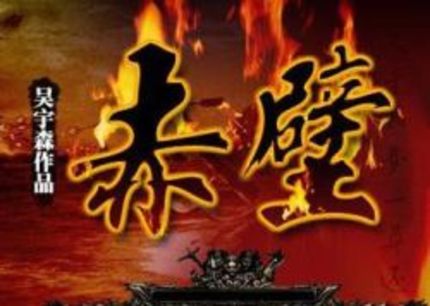RED CLIFF: Another Review

There's something about the Hong Kong action films of yore. That certain something has never been captured in any other action films from any other countries. For one thing, HK action displays a special kind of reckless spirit and vigour, and the thrills always have a surprising, in-the-moment feel to them. Some of this has been lost in recent years, as HK action films started to become more structured and formal, more "rigid" in a way. In the old days, it was that directors could do stuff according to their whims and fancies. Scripts were rewritten on set, sets were changed at the last minute, everything was on the go, immediate. And with that creative freedom came a sense of joy. And this pretty much came across on screen. No matter how incongruous the action could sometimes be, you know it was hell of a lot of fun, and no one was taking anything too seriously.
John Woo came from that generation of filmmakers who paid their dues as crew members, working their way up the hard way to finally be in the director's seat. Directors of that time were mostly very humble, down-to-earth gentlemen who ate out of lunch-boxes and knew exactly what they wanted with a scene. They worked with no sense of glamour, no personal trailers, but worked to just get their vision on screen and get things done. When Woo went to Hollywood, it was a truly momentous occasion for those of us who were fans of his work. With that kind of budget that Hollywood could afford, what would Woo be able to do? Face/Off and Broken Arrow had that Hollywood formality but still retained that HK sense of creative abandon, and they were delightful films that were an extension of what he could do in HK. (I never saw Hard Target, so don't ask me about that one!)
But Woo later seemed to have been swallowed up by the studio system. His films started to be less fun, and his action sequences losing a bit of energy. The dove, instead of continuing to be a special trademark of Woo's, sort of became dangerously close to self-parody.
Now, at this time when a lot of Asian directors and actors have decided to head back home, so we celebrated Wo's return too, hoping he would be able to recapture his HK form. In a way, with the ambitious Red Cliff, he does. There's that great old spirit of HK action looming over the big, big action sequences, with characters getting into cool poses as much as they do displaying spectacular fight moves. That old energy is recaptured successfully. It's understandable that this has been Woo's dream project for almost two decades, so he pulls out all the stops.
But what's fascinating is how much Hollywood has influenced him, yet also how much he is still able to retain the essence of who he really is as a HK action director. To say that Woo works best when he's working with Asians would be demeaning to the great talent that he is. He has proven that he can work equally well with anyone in any location. But perhaps it's the difference in working systems that inspires the different qualities of his work. As such, Red Cliff seems to have taken the best of both worlds and become a sort of hybrid Hollywood/Asian action movie, at once bearing the immediacy in spirit of the old HK films and the sprawling feel and formality of big Hollywood productions.
But the huge, epic aspects of the film, which are its draw, are also its problems. Huge epics usually fail when they forget to narrow the story down. And when they do, sometimes they forget to rein in big, sweeping epic moments and allow them to overwhelm everything else. Woo manages to tell an intimate story with interesting and entertaining, and sometimes even humorous, interactions between the characters. He allows the characters to breathe and live, and he takes his time to flesh them out into real, believable people. But those big epic moments do overshadow and threaten to null the better human moments. The thing about scenes done on a huge scale is that they need to have meaning and purpose for proper integration into the story. Take, for example, The Last Emperor's sprawling scenes, which help to frame the more intimate parts of the story within proper context. Or even Zhang Yimou's Hero, which conveys a sense of the greater world against smaller, independent interests.
And this is the unfortunate part of Red Cliff. Its big scenes of battles and armies, vistas and fortresses, seem only for show. Because of this, they tend to get repetitive and tiresome after a while. It's also unfortunate that it comes on the heels of other recent epic movies like The Warlords and that other, albeit lesser, Three Kingdoms adaptation, Three Kingdoms: Resurrection Of The Dragon.
But Red Cliff has a lot going for it, namely it's John Woo's "comeback Asian film," it's the most expensive Chinese-language movie ever made, and it's got a great and capable cast. It's a delight to see Farewell My Concubine's Zhang Fengyi in action again, and Tony Leung Chiu-wai brings his onscreen charisma and charm once again, while newcomer Lin Chiling is appropriately demure and lovely.
It helps to remember that this is only the beginning, the setting up for more to come. There is the sense that the movie hasn't really started to take off, just yet. But if a prologue like this is already interesting enough, then it's definitely worth anticipating what would be next. The final, "cliffhanger" scene, shot in one long take, is breathtaking.
But somehow, it would have been much better if it didn't feel like Woo made a huge historical epic just for the sake of making it huge and historical.







